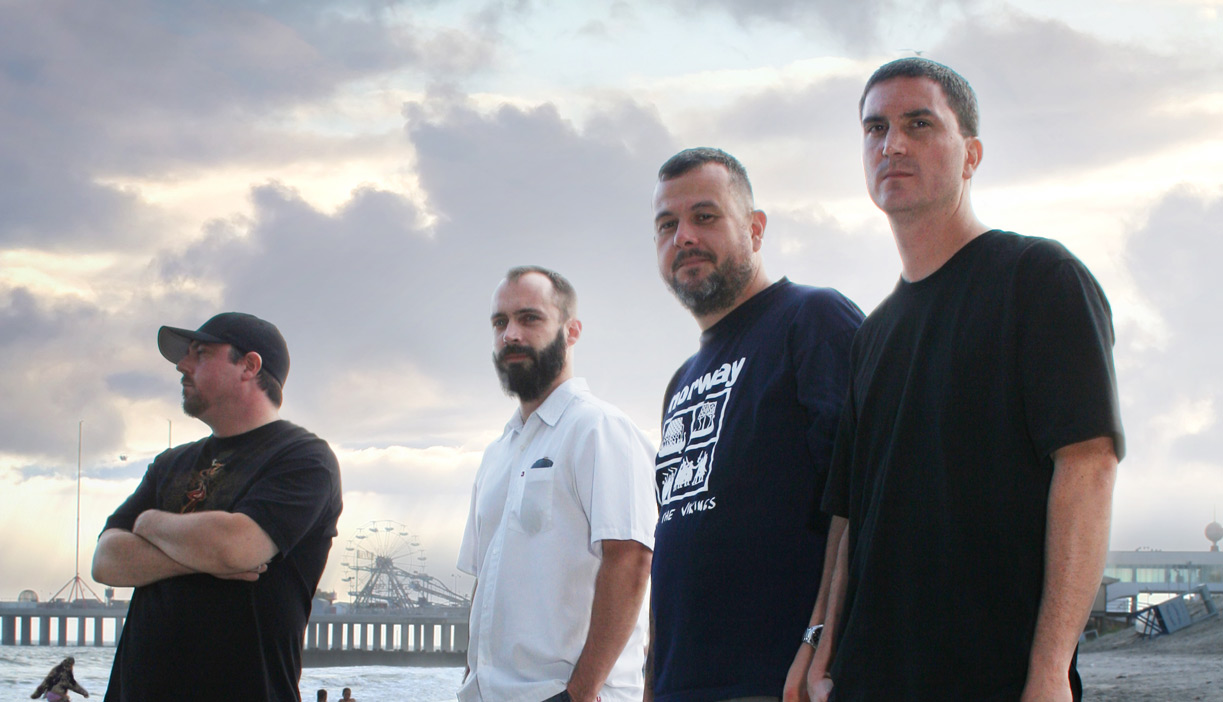In the 1990s, eccentric heavy-rock four-piece Clutch created a side project and “alter-ego” blues/jam band called The Bakerton Group. On February 17, The Bakerton Group released El Rojo, produced by J. Robbins and released on the band’s own label, Weathermaker Music.
Drummer Jean-Paul Gaster talks with Kim Manning about the recording industry, performing in both configurations, and what’s in store for each.
Many band members have side projects, but what made you guys decide to have an “alter-ego” with all the same members (with the addition of Opeth keyboardist Per Wiberg on the new album)? How does Bakerton differ from Clutch?
We originally started The Bakerton Group in the ’90s. Neil actually moved to Denver for a short amount of time, and we found ourselves with downtime and wanted to try the instrumental thing.
We’re all way into jazz and the blues and wanted to play that style of music, so at the time we played some Thelonious Monk and [John] Coltrane covers. More than anything, it was an experiment.
We decided that when we started Weathermaker, we wanted to make and release a Bakerton record now that we had some real distro and a real label. We’ve been friends with Per for a long time and toured with him a bunch in Europe.
He’s a monster keyboard player and has an affinity for funk, jazz, and the blues, so it was a natural fit. It turned out he had time off after an Opeth tour to record, so it worked out perfectly.
What differences do you find in writing material for each group?
The biggest difference is being able to write songs that aren’t focused around lyrics. Over the years, we’ve become really good at writing Clutch songs, and on the flipside, it’s a great challenge to write the Bakerton tracks.
We’re much more concerned about the form of the songs and trying to find what melodies are working where, and really, the instruments themselves become a lyrical focal point. At the end of the day, it’s still hooks. We’re trying to write those things that still stick in people’s heads.
Why did you decide to create your own label, Weathermaker Music?
We realized after we were finally done with DRT (our previous label) that it was time to do something drastically different. The idea of running our own label was always something that we’ve been interested in, but at the time, the distributors were not into the idea of working with just bands.
Over the past few years, though, it was apparent that we as a band could sell as many records as any of the indie labels out there — that’s kind of what spurred it. It’s exciting to have our own label; we have a lot of projects planned that we’re excited about.
Would you recommend for other bands to create their own label?
No doubt about it. The idea of a label as we know it really is nonexistent nowadays. The industry’s changed so much.
There’s a lot of ways for bands to get recognition today. The Internet has had a large impact on the way bands do business. Anything you can do yourself is the way to go; you can’t wait around for people to get interested in your band anymore.
These labels were trying to sell millions of records, and that doesn’t happen today, whereas years ago that happened way more frequently. Major labels are definitely a dying breed, and anyone who can start their own label should definitely do it.
Two bands, a record label…what’s next?
I’m pretty sure that we have our work cut out for ourselves at the moment. These days we’re either on the road or writing more songs for both bands. It’s really gone like that steadily for the past year. We’ve had no time off in over a year.
I don’t think that we’ll put out any bands on our label not related to Clutch — that was never the plan — but we’ll have the new Clutch full-length this summer, which we start recording after this tour, and maybe some other surprises coming soon as well.
– Kim Manning

